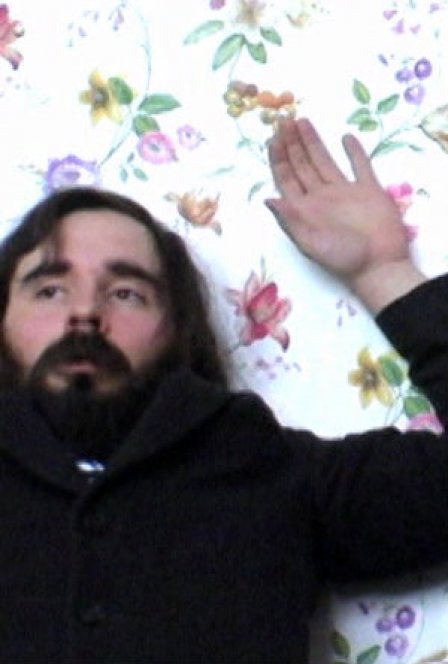‡ I haven’t seen any of the Ontological-Hysteric Theater’s productions.
∂ “The [OHT] was founded by Foreman in 1968 with the aim of “stripping the theater bare of everything but the singular and essential impulse to stage the static tension of interpersonal relations in space.”
→ No results found for static interpersonal relations in space
‡ Having seen Once Every Day, I can’t read this description now without thinking, dead end.
∂ “This film came to life for me after I tried to make three in this way, and it was much too rigidly controlled, based on my theatrical background. And for this film, there was me setting up the main image, and then two or three other people always filming, and I just told them, ‘Film whatever you want, not necessarily what you think I think is important.’”
∈ “Help me! Help me!”
‡ At first blush and in hindsight, Richard Foreman seems to have made all of the wrong decisions in this film. (After every sentence I write under the heading of the double dagger, imagine me imagining Richard Foreman saying, That’s the point.) The picture quality is grainy. There isn’t any plot, but so what? There aren’t any characters— fine. There are a couple of notions but no ideas. The film records the staging of a mise-en-scène. Okay. If all that sounds appealing to you, please go back to grad school. Please chuckle mildly at the moments that can be construed as funny. Please furrow your brow periodically. Please be as generous as possible and take as self-aware the many devices that are, let’s face it, self-conscious in the way an old man with nothing to say about public speaking might become self-conscious if he convinced himself to give a public lecture about public speaking. If you’ve done all that and you’ve felt something that will abide in you, something you can nurture as a gift, something you can feel grow through circulation, then you’re a better viewer of Every Other Day than I’ve been.
∃ “Fundamental interpersonal relations orientation (FIRO) is a theory of interpersonal relations introduced by William Schutz in 1958. This theory mainly explains the interpersonal underworld [!] of a small group. The theory is based on the belief that when people get together in a group, there are three main interpersonal needs they are looking to obtain—affection/openness, control and inclusion.”
‡ While women pose as directed, supine, gazing into the camera, their cleavage figured; while men pose as directed, left hand on woman’s right thigh, and so forth; while men rush to take stuffed animals from a cupboard — while these happen the uttered fragments of a notion (let’s not say “thesis”) ride over the top:
∈ “In a world in which | to have an original idea | is to swerve from the past / may not be the best idea.”
‡ Foreman wants to have his theory and eat it too. Mad hypothesis: you can’t put the word “swerve” in a video that isn’t a biography of Lucretius without resenting yourself or your audience. If you’re so anxious about the originality of ideas — yours, theirs, ours — please install this film in a gallery where we can wander in and out and properly ignore it, on the whole.
∂ “Something went wrong. At you first you couldn’t hear it, and now I must say, it’s too loud. And a lot of things become too obvious and vulgar, I mean, my statements sound like—[“Into the mic; they record it.”]—my statements sound like, ‘Oh, I’m saying something true and important,’ whereas it’s supposed to be sort of thrown off, like uh, you know, ‘The truth may not be funny.’”
‡ At 75, Foreman’s running on charms. Once Every Day is ritualistic. The cameras record the effects of magical thinking. Something beautiful is supposed to emerge out of strange focus and slant attention to the movements of quotidian theater. After the credits, we see Foreman sitting, reading the script — a script, any script. He’s taking notes, maybe. Once every day.
∃ William James writes in “A World of Pure Experience” (1904), “Is it not time to repeat what Lotze said of substances, that to act like one is to be one? Should we not say here that to be experienced as continuous is to be really continuous, in a world where experience and reality come to the same thing? In a picture gallery a painted hook will serve to hang a painted chain by, a painted cable will hold a painted ship. In a world where both the terms and their distinctions are affairs of experience, the conjunctions which we experience must be at least as real as anything else.”
‡ Why would Foreman make a film with people in it if he didn’t think a filmed person would have a face?
∀ KEEP OUT OF REACH OF CHILDREN

